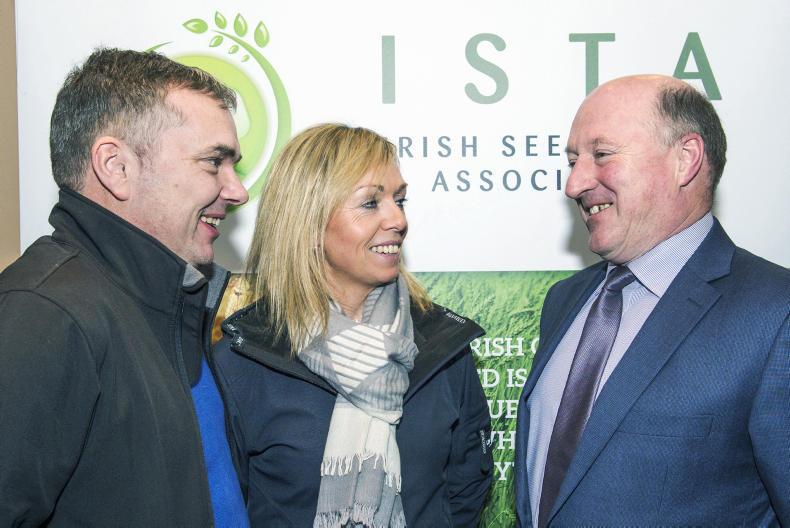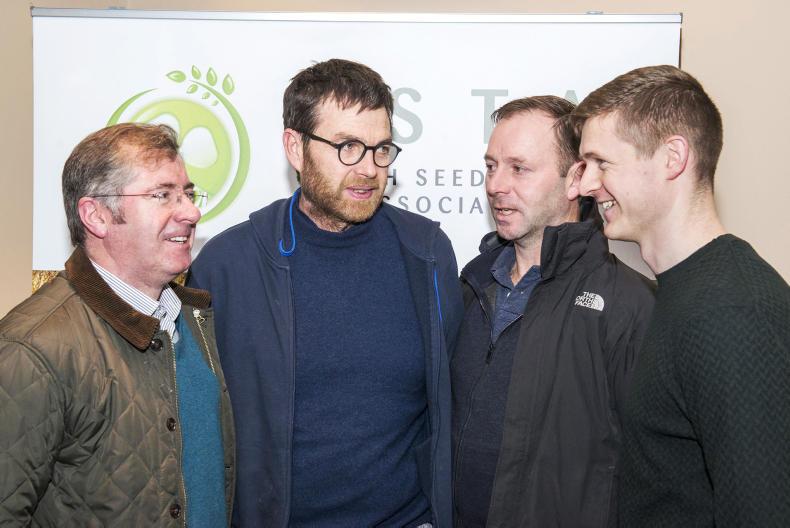The Irish seed industry and certification process has served farmers well, according to speakers at the Irish Seed Trade Association meetings this week.
Tim O’Donovan from Seed Technology said that the variety development and assessment process has produced a number of varieties over the past few decades that were unique to Ireland. Examples include Barra oats, Aisling, Snakebite and Mickle spring barleys and Raffles spring wheat.
Tim explained that the plant breeding sector has seen a lot of amalgamation in recent years and it is now in the hands of relatively few companies who are using the newest technologies to help the efficiency of the breeding process.

New tools enable desirable characteristics to be developed and Tim indicated that breeders may bring new traits in future, such as more durable BYDV resistance.
Donal Fitzgerald of Goldcrop explained that the Irish certification system operates to one of the highest standards in the EU.
It is independently controlled by the Department of Agriculture, which is judge and jury on every field and seed lot.
And the system operates a higher voluntary standard for wild oats, blackgrass and sterile brome. If any of these weeds are seen in a field of cereal for seed, they will be rejected.
Speaking on variety assessment, Clodagh Whelan from the Department of Agriculture told the large crowd gathered that there is a new oat variety being evaluated, which appears to have a specific weight that is at least as good as Barra, which has been the flagship variety for quality for over 30 years.
The variety is called Isabel and it is also said to have good straw characteristics.
Read more
Tillage management: cold and wet bring risk of crop heave
Top five weather risks for grain markets in 2018
The Irish seed industry and certification process has served farmers well, according to speakers at the Irish Seed Trade Association meetings this week.
Tim O’Donovan from Seed Technology said that the variety development and assessment process has produced a number of varieties over the past few decades that were unique to Ireland. Examples include Barra oats, Aisling, Snakebite and Mickle spring barleys and Raffles spring wheat.
Tim explained that the plant breeding sector has seen a lot of amalgamation in recent years and it is now in the hands of relatively few companies who are using the newest technologies to help the efficiency of the breeding process.

New tools enable desirable characteristics to be developed and Tim indicated that breeders may bring new traits in future, such as more durable BYDV resistance.
Donal Fitzgerald of Goldcrop explained that the Irish certification system operates to one of the highest standards in the EU.
It is independently controlled by the Department of Agriculture, which is judge and jury on every field and seed lot.
And the system operates a higher voluntary standard for wild oats, blackgrass and sterile brome. If any of these weeds are seen in a field of cereal for seed, they will be rejected.
Speaking on variety assessment, Clodagh Whelan from the Department of Agriculture told the large crowd gathered that there is a new oat variety being evaluated, which appears to have a specific weight that is at least as good as Barra, which has been the flagship variety for quality for over 30 years.
The variety is called Isabel and it is also said to have good straw characteristics.
Read more
Tillage management: cold and wet bring risk of crop heave
Top five weather risks for grain markets in 2018







 This is a subscriber-only article
This is a subscriber-only article











SHARING OPTIONS: